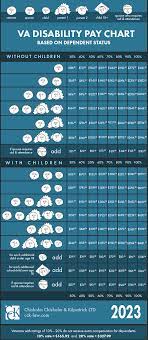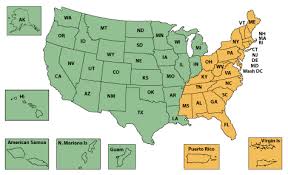VA Loan Eligibility: A Path to Homeownership for Veterans
For many veterans and active duty military personnel, the dream of owning a home can seem out of reach. However, the Department of Veterans Affairs (VA) offers a valuable program known as VA loans that can make this dream a reality. VA loans provide eligible veterans with the opportunity to purchase a home with favorable terms and conditions. But what exactly are the eligibility requirements for VA loans?
First and foremost, to be eligible for a VA loan, you must have served in the military and meet certain service requirements. Generally, veterans who have served at least 90 consecutive days during wartime or 181 days during peacetime are eligible. National Guard members and reservists may also qualify if they have completed at least six years of service.
In addition to meeting the minimum service requirements, you must obtain a Certificate of Eligibility (COE) from the VA. This document confirms your eligibility for a VA loan and is typically obtained through your lender or directly from the VA. The COE takes into account your length and type of service, as well as any previous use of VA loan benefits.
Another important factor in determining eligibility is your credit history. While there is no specific credit score requirement set by the VA, most lenders will evaluate your creditworthiness based on factors such as your payment history, debt-to-income ratio, and overall financial stability.
It’s worth noting that one unique aspect of VA loans is that they do not require a down payment in most cases. This can be a significant advantage for veterans who may not have substantial savings for a traditional mortgage down payment. Additionally, VA loans typically do not require private mortgage insurance (PMI), which can save borrowers hundreds of dollars each month.
To further ensure eligibility for a VA loan, you will need to meet certain income requirements set by the VA. These guidelines help determine whether you have sufficient income to cover your mortgage payments and other expenses. Lenders will assess your income based on factors such as employment stability, current debts, and your ability to repay the loan.
It’s important to remember that while the VA sets the basic eligibility requirements for VA loans, individual lenders may have additional criteria that they consider when approving a loan. Therefore, it’s crucial to work closely with a knowledgeable lender who specializes in VA loans to guide you through the process and help determine your eligibility.
In conclusion, VA loans offer a fantastic opportunity for veterans and active duty military personnel to achieve homeownership. By meeting the service requirements, obtaining a COE, maintaining good credit, and meeting income guidelines, veterans can take advantage of this beneficial program. If you’re a veteran dreaming of owning a home, explore the possibilities of a VA loan and take advantage of the benefits you’ve earned through your service to our country.
5 Essential Tips for Meeting VA Loan Eligibility Requirements
- Make sure you meet the VA loan requirements for eligibility, including having served at least 90 days of active duty service during wartime or 181 days during peacetime.
- Be sure to obtain your Certificate of Eligibility (COE) from the VA to prove your eligibility and provide it to your lender when applying for a VA loan.
- Have a good credit score and acceptable debt-to-income ratio in order to qualify for a VA loan.
- Save up enough money for closing costs, as they are typically required with a VA loan even though there is no down payment requirement.
- Research different lenders and compare their terms and rates before selecting one to apply with, as some may offer better deals than others on VA loans.
Make sure you meet the VA loan requirements for eligibility, including having served at least 90 days of active duty service during wartime or 181 days during peacetime.
Meeting the VA Loan Requirements: Serving Your Country and Securing a Home
If you’re a veteran or an active duty military personnel dreaming of homeownership, the VA loan program can be a game-changer. However, before diving into the process, it’s crucial to ensure that you meet the eligibility requirements set by the Department of Veterans Affairs (VA).
One of the key requirements for VA loan eligibility is meeting the minimum service criteria. To qualify, veterans must have served at least 90 consecutive days of active duty during wartime or 181 days during peacetime. These timeframes are benchmarks that demonstrate your commitment to serving our country.
During wartime, which includes World War II, the Korean War, Vietnam War, Gulf War, and more recent conflicts in Iraq and Afghanistan, serving 90 consecutive days makes you eligible for a VA loan. During peacetime periods, including times between wars or conflicts, veterans must complete 181 days of active duty service to meet the requirement.
It’s important to note that these service requirements are not limited to combat roles. They apply to all branches of the military and encompass various roles and responsibilities performed by veterans.
By meeting these service criteria, you unlock access to a range of benefits offered through VA loans. These benefits include favorable terms such as no down payment requirement in most cases and exemption from private mortgage insurance (PMI) payments. Such advantages can significantly ease the financial burden associated with purchasing a home.
To confirm your eligibility for a VA loan based on your service history, you will need to obtain a Certificate of Eligibility (COE) from the VA. This document acts as proof that you meet the necessary requirements for a VA loan and is typically obtained through your lender or directly from the VA.
By ensuring that you meet these critical eligibility requirements for VA loans, you take an essential step towards fulfilling your dream of homeownership. Remember that while meeting these service criteria is crucial, there are other factors to consider, such as credit history and income requirements. Working with a knowledgeable lender who specializes in VA loans will help guide you through the process and ensure that you meet all the necessary criteria.
Take pride in your service to the nation and leverage the benefits you’ve earned. If you’ve met the minimum service requirements, explore the possibilities of a VA loan and make your dream of owning a home a reality.
Be sure to obtain your Certificate of Eligibility (COE) from the VA to prove your eligibility and provide it to your lender when applying for a VA loan.
Obtaining Your Certificate of Eligibility (COE): A Crucial Step in VA Loan Eligibility
When it comes to applying for a VA loan, one crucial step that veterans must not overlook is obtaining their Certificate of Eligibility (COE) from the Department of Veterans Affairs (VA). This document serves as proof of your eligibility for a VA loan and is an essential requirement when applying for this type of mortgage.
The COE is a valuable document that confirms your military service and verifies that you meet the eligibility requirements set by the VA. It takes into account factors such as your length and type of service, any previous use of VA loan benefits, and other relevant information. Without this certificate, you may face challenges in securing a VA loan.
To obtain your COE, you can work directly with the VA or through your lender. The process typically involves submitting certain documentation, such as your DD Form 214 or Statement of Service, along with a completed application form. The VA will then review your information and issue the COE if you meet the eligibility criteria.
When applying for a VA loan, it’s crucial to provide your COE to your lender. This document acts as evidence that you are eligible for a VA loan and helps streamline the application process. Lenders rely on the COE to verify your status and determine whether you qualify for this type of mortgage.
By obtaining and providing your COE upfront, you demonstrate to lenders that you have taken the necessary steps to establish your eligibility. This proactive approach can help expedite the loan approval process and increase your chances of securing favorable terms and conditions.
In summary, obtaining your Certificate of Eligibility (COE) from the VA is an essential step when applying for a VA loan. It serves as proof of your eligibility and provides invaluable information about your military service history. By ensuring you have this document in hand and providing it to your lender during the application process, you can enhance your chances of securing a VA loan and make progress towards achieving your homeownership goals.
Have a good credit score and acceptable debt-to-income ratio in order to qualify for a VA loan.
Qualifying for a VA Loan: The Importance of Credit Score and Debt-to-Income Ratio
When it comes to obtaining a VA loan, having a good credit score and maintaining an acceptable debt-to-income ratio are crucial factors that lenders consider. These two aspects play a significant role in determining your eligibility for this beneficial program.
Your credit score reflects your financial responsibility and history of repaying debts. While the Department of Veterans Affairs (VA) does not set a minimum credit score requirement, most lenders will evaluate your creditworthiness based on factors such as payment history, outstanding debts, and the length of your credit history. A higher credit score demonstrates your ability to manage finances effectively, making you a more desirable candidate for a VA loan.
To improve your credit score, it’s essential to make timely payments on all your existing debts, such as credit cards, student loans, or car loans. Reducing outstanding balances and avoiding new debt can also positively impact your creditworthiness over time.
Additionally, maintaining an acceptable debt-to-income (DTI) ratio is crucial when applying for a VA loan. The DTI ratio compares your monthly debt payments to your gross monthly income. Lenders use this ratio to assess whether you have sufficient income to cover both existing debts and the mortgage payment associated with the VA loan.
To calculate your DTI ratio, add up all monthly debt payments (including minimum credit card payments, car loans, student loans, etc.) and divide it by your gross monthly income. Multiply the result by 100 to get the percentage. Ideally, lenders prefer borrowers with a DTI ratio below 41%. However, some flexibility may be allowed based on other compensating factors.
If you find that your DTI ratio is higher than desired, there are several steps you can take to improve it. Paying off high-interest debts or consolidating multiple debts into one lower-interest loan can help reduce monthly obligations and improve the ratio. Additionally, increasing your income through a raise, promotion, or taking on a part-time job can also positively impact your DTI ratio.
By focusing on maintaining a good credit score and an acceptable debt-to-income ratio, you increase your chances of qualifying for a VA loan. These steps not only demonstrate your financial stability but also show lenders that you are responsible and capable of managing the financial commitment associated with homeownership.
Remember, it’s essential to work closely with a knowledgeable lender who specializes in VA loans. They can guide you through the qualification process and provide personalized advice based on your unique financial situation. With dedication and careful financial planning, you can position yourself for success in obtaining a VA loan and achieving the dream of homeownership as a veteran or active duty military personnel.
Save up enough money for closing costs, as they are typically required with a VA loan even though there is no down payment requirement.
Save for Closing Costs: A Crucial Step in VA Loan Eligibility
If you’re considering a VA loan to fulfill your dream of homeownership, it’s important to understand that while no down payment is typically required, you will still need to save up for closing costs. Closing costs are an essential part of the homebuying process and can include fees such as appraisal costs, title insurance, loan origination fees, and more.
Closing costs are expenses that must be paid at the time of closing on your new home. They can vary depending on factors such as the purchase price of the property and your location. It’s crucial to be prepared for these costs, as they can amount to a significant sum.
While it may seem daunting to save up for closing costs on top of other financial obligations, it’s an important step in ensuring your eligibility for a VA loan. Building a savings plan specifically earmarked for closing costs will help you navigate this aspect of the homebuying process with confidence.
To start saving for closing costs, consider setting aside a portion of your monthly income dedicated solely to this purpose. Creating a budget can help you identify areas where you can cut back on expenses and redirect those funds toward your savings goal. Additionally, explore ways to increase your income or consider temporarily reducing discretionary spending until you’ve reached your target amount.
It’s also worth noting that some sellers may be willing to contribute towards closing costs as part of the negotiation process. This is known as seller concessions and can help alleviate some of the financial burden associated with closing costs. Discuss this possibility with your real estate agent or lender to see if it could be an option in your situation.
By saving up enough money for closing costs, you demonstrate financial responsibility and enhance your overall eligibility for a VA loan. Being prepared financially not only increases your chances of securing a loan but also ensures that you have a smooth and successful homebuying experience.
In conclusion, while a VA loan offers the advantage of no down payment, it’s crucial to save up for closing costs. By diligently setting aside funds specifically for this purpose, you can confidently move forward in the homebuying process and fulfill your homeownership dreams. Remember, proper planning and financial preparation are key to making the most of your VA loan eligibility.
Research different lenders and compare their terms and rates before selecting one to apply with, as some may offer better deals than others on VA loans.
Finding the Best Deal: Researching Lenders for VA Loans
When it comes to applying for a VA loan, one of the most crucial tips to keep in mind is to research different lenders and compare their terms and rates. This step is essential because not all lenders offer the same deals on VA loans. By taking the time to explore your options, you can ensure that you’re getting the best possible deal and maximizing the benefits of your VA loan eligibility.
Each lender has its own set of terms, interest rates, and fees associated with their VA loans. By comparing these factors among different lenders, you can identify which one offers the most favorable conditions for your unique financial situation.
Start by researching reputable lenders who specialize in VA loans. Look for lenders who have experience working with veterans and understand the intricacies of the program. Reading reviews and seeking recommendations from fellow veterans or trusted sources can also help narrow down your choices.
Once you have a list of potential lenders, delve deeper into their terms and rates. Pay close attention to details such as interest rates, closing costs, origination fees, and any other charges associated with the loan. It’s important to consider both short-term costs at closing as well as long-term implications over the life of the loan.
Comparing lenders’ terms and rates will give you a clearer picture of what each lender can offer. You may find that some lenders have lower interest rates or more flexible repayment options than others. Additionally, some may have specific programs or incentives tailored specifically for veterans that could benefit you.
Keep in mind that while it’s important to focus on finding competitive terms and rates, it’s equally crucial to work with a lender who provides excellent customer service and support throughout the loan process. A responsive and knowledgeable lender can make all the difference when it comes to navigating through paperwork, answering questions, and ensuring a smooth transaction.
By conducting thorough research on different lenders specializing in VA loans, you can make an informed decision that aligns with your financial goals. Remember, this is a significant commitment, so taking the time to compare lenders and their offerings will help you secure the best possible deal on your VA loan.
In conclusion, researching and comparing lenders for VA loans is a vital step in the process of utilizing your VA loan eligibility. Take advantage of the resources available to you as a veteran and explore different lenders’ terms and rates. By doing so, you can find the lender that offers the most favorable conditions for your specific needs, ensuring that you make the most of your VA loan benefits.



